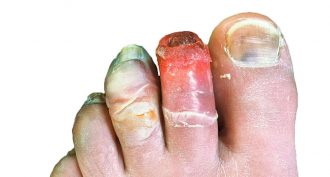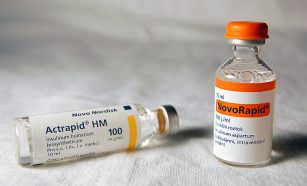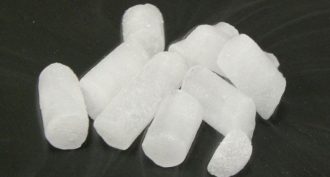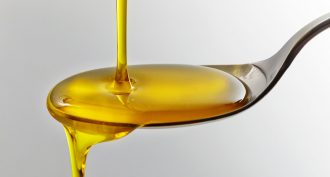Scientists Say
A weekly word defined, in a sentence and in context.
-
 Health & Medicine
Health & MedicineScientists Say: Hyperthermia
If our body temperatures rise too high, we can suffer from hyperthermia.
-
 Animals
AnimalsScientists Say: Torpor
When an animal enters torpor, its body temperature goes down and so does the amount of energy it uses.
-
 Health & Medicine
Health & MedicineScientists Say: Frostbite
As we get cold, the blood vessels near our skin constrict to keep body heat in. But in the process, they leave some tissues in danger of frostbite.
-
 Health & Medicine
Health & MedicineScientists Say: Hypothermia
Our bodies need to stay warm to function correctly. If our temperature drops too much, we can suffer from hypothermia.
-
 Health & Medicine
Health & MedicineScientists Say: Bruxism
Some people clench their jaw when their stressed. People who do it a lot may have bruxism.
-
 Health & Medicine
Health & MedicineScientists Say: Tinnitus
Ever had ringing in your ears? Tinnitus is a condition in which you hear a persistent sound that isn’t there.
-
 Health & Medicine
Health & MedicineScientists Say: Insulin
This chemical is a lifesaver. It helps our bodies use the sugars from our food, and without it, people develop diabetes.
-
 Chemistry
ChemistryScientists Say: Sublimation
Matter doesn’t always go from solid to liquid to gas. Sometimes it skips a step.
-
 Chemistry
ChemistryScientists Say: Surface tension
Surface tension is what makes water in your glass seem like it’s covered by an invisible membrane holding it together.
-
 Genetics
GeneticsScientists Say: eDNA
Animals may escape traps or nets, but they often leave DNA behind in their environment, giving scientists important clues.
-
 Physics
PhysicsScientists Say: Diffraction
When liquid hits something it spatters, when light hits something, it scatters. The process is called diffraction.
-
 Chemistry
ChemistryScientists Say: Unsaturated fat
These fats are found in foods like olive oil. It’s their special bonds that make them go with the flow.